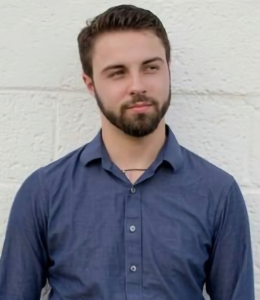Elections for Student Government are coming up soon, and several students are hitting the campaign trail.
On the ticket for next year’s Student Government President are junior Samantha Montañez and sophomore J.J. Price. Running with Montañez for vice president is junior Liza Day, and running with Price is junior Kathryn Poe.
Montañez and Day are running on a platform of connectivity.

Montañez is the current president of the on campus organization Students of Latinx Affinity (SOLA). She’s on the Bonner leadership team and is a current junior senator in Student Government. Montañez is also a residential assistant, an intern with the Office of Diversity and Inclusion (ODI), and is actively involved with Sister Network and Students for the Advancement of Afrikan-American Culture (SAAAC).
Day is the current president of Delta Phi Epsilon, as well as the former president of the Campus Democrats. She is also an orientation leader and an editor for the magazine Ellipsis, an on-campus publication for student research in the social sciences.
“I want to run because I think there needs to be a shift in energy … what we hope to accomplish is to see manageable improvement that can exist once our term is over,” Montañez said.
While Capital has many different student organizations, Montañez and Day claim that there is a lack of communication between the various types of organizations, such as those connected to the ODI or the Office of Student and Community Engagement (SCE).
According to Montañez, it is also very difficult for students to get into contact with the university’s administration and faculty about campus problems.
“[Our goal] is to definitely uplift different groups of individuals or organizations or community members or any idea so that our student body feels like they’re heard … We want to enact deeply rooted change and create really strong bonds between our students and faculty,” Montañez said.

According to Montañez and Day, they would like to create greater cohesion between individual student groups, as well as between the entire student body and university faculty.
“I think Student Government can be the central body that connects all organizations together,” Day said.
Part of Montañez and Day’s plan to foster a better sense of community cohesion between students and faculty is to establish a monthly or semesterly “town hall” where students can interact with and voice concerns to members of the university administration that they would otherwise not have access to in the course of their normal student activities.
“We want to make sure that we create an open environment where people feel like they can propose their ideas without judgment,” Day said.
Price and Poe are running on a platform that seeks to improve Student Government itself.
Price has been a representative in Student Government for the past two years and is the current speaker of the senate in Student Government. He is also a part of the Capital University Rock Ensemble and the Wind Symphony.
Poe has been involved in Student Government since her first year, and is involved with Embrace Ministries and the Campus Democrats. She is also part of the Bonner program, a contributor to the Chimes, and an advocate for the organization Be the Match, the national bone marrow transplant foundation.
“A lot of it, for lack of better terms, is chunky,” Price said about Student Government.
According to Price and Poe, while Student Government is an important body to help enact change, a number of the organization’s internal policies make the organization less efficient and thus less effective than it should be.
According to Price, there are also a number of issues relating to the education of new Student Government officers. Senators are often not taught the definitive extent of their responsibilities or about the inner workings of the organization’s processes.
Price and Poe’s main goal should they take office is to work with the other members of Student Government to restructure some of the more draconian aspects of organization’s bylaws, and make sure that Student Government positions are clearly defined and communicated to new members.
“The big thing is really giving a voice to the students,” Price said.
According to Poe, another large focus of their platform is on campus accessibility and compliance with the American Disabilities Act (ADA), a federal mandate setting accessibility standards.
“We’re not wheelchair-safe, we flood between buildings, there are a lot of structural problems,” Poe said about campus accessibility conditions.
According to Poe, the only building that is completely ADA accessible is the Convergent Media Center.
As president and vice president, Price and Poe aim to advocate for more compliance with ADA standards on campus. Price and Poe have a campaign website at www.price4prez.com.


